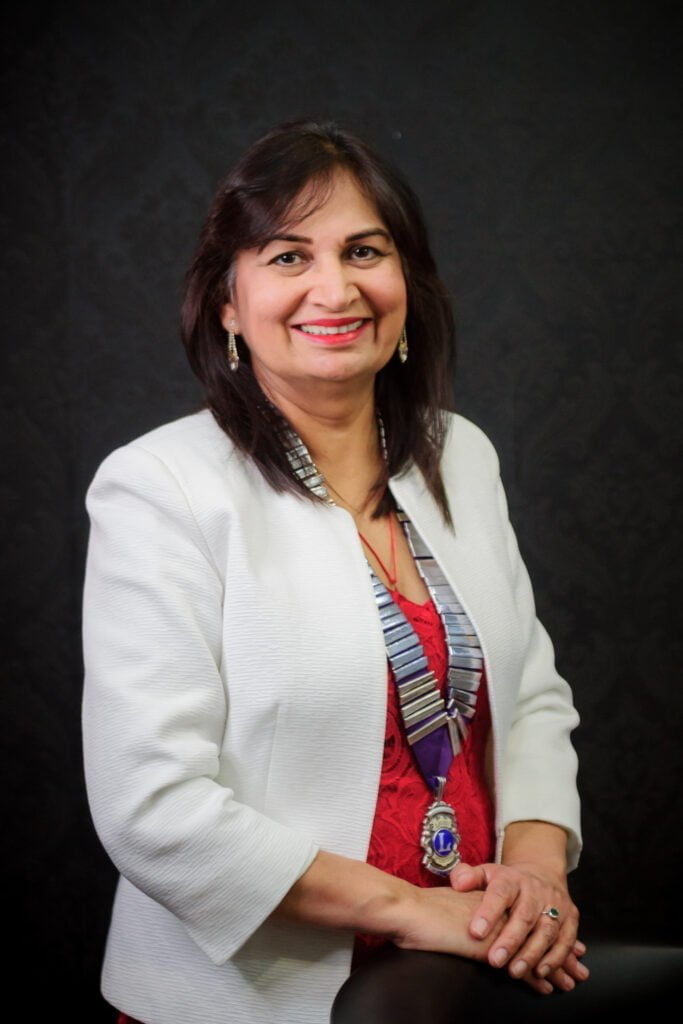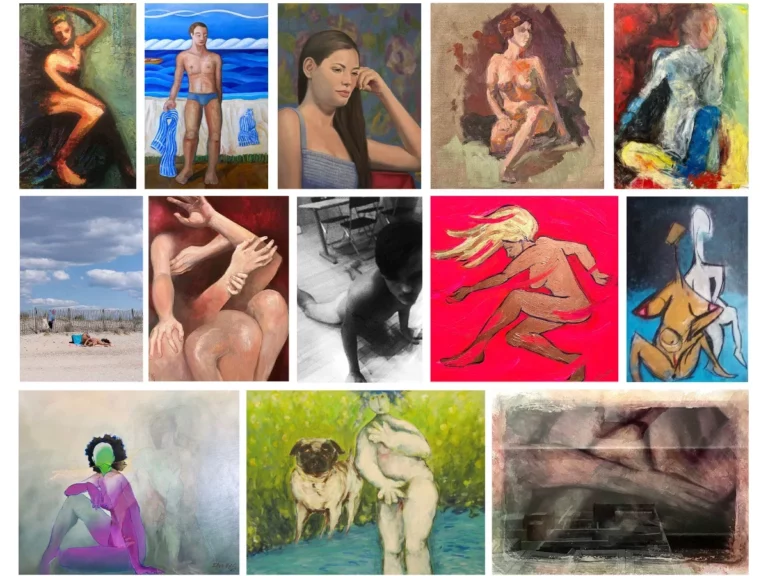What women want: a life re-imagined to close the wealth gap

The wealth gap is a complex issue that requires a multifaceted approach to be addressed. Who is going to close the wealth gap for women? Is increasing access to financial resources and education enough to address the systemic inequality in education and employment women are facing?
The UN report shows clearly that we need another 275 years just to close the gender pay gap. Personally I know I will not live that long to see it happen, so today we have the privilege of speaking with Abhnash Bains, Founder of Ishkama which she designed to harness mental wellness, providing tailored services to your needs and publishing a beautiful monthly magazine for Londoners.
Abhnash is simply one of the most remarkable women I know and in this article she shares her insights on how to re-imagine your life when facing challenges and how fostering a culture of generosity and mental wealth, we can work together to close the gap and create a more equitable society for all. Together we looked into the human potential, one of the least explored planets, yet the key to unlocking the most extraordinary solutions during hard times. Keep reading, the best is yet to come!

Table of Contents
A life re-imagined: women challenging social norms to close the wealth gap
Abhnash Bains is a remarkable woman who accepted my invitation to share her story on the Be You Podcast- an inspiring story of resilience in the face of adversity. After undergoing brain surgery and losing her job, Abhnash could have easily given up. Instead, she chose to re-imagine her life and channel her inner strength into building a successful business.
Not only has Abhnash achieved great success, but she also continues to give back to her community and she became a servant leader who uses her business empire to shed light on social injustices and elevate the voices and experiences of women from all walks of life. She took the world by storm with her creative and professional approach to living a successful, satisfying professional and personal life. Her aim is to help people to achieve their personal, professional, and financial goals.
Abhinash believes that imagination is the key to developing a positive mindset. “We need to reimagine the way we approach problems and visualise different solutions. By doing so, we can change the way we think and feel about ourselves and our abilities. We should also give back to others, as this creates a positive cycle in life.” Abhinash’s own success story is a testament to the power of imagination and the positive impact it can have on our lives.
The wealth gap is a systemic issue that requires a concerted effort to be fully addressed. The good news is that there are steps that we can take to close the gap little by little and create a more equitable society. “One key step is to increase access to financial resources and education for marginalized communities, particularly women and people of color. This includes providing support and resources for entrepreneurship and business ownership, as well as programs that help people build financial literacy and skills.” Abhnash said.
We both agree that addressing systemic inequality in education and employment is a tall order but unless we carry on taking small steps, every day, leveling the playing field in education and employment, at least we can feel that we are doing everything in our power so everyone has an equal shot at success. This includes increasing access to high-quality education and training programs, as well as creating policies that promote equal pay and career advancement opportunities.
“In addition to these steps, it’s also important to foster a culture of generosity and philanthropy. This means encouraging individuals and companies to give back to their communities and invest in social causes that address systemic inequality. By promoting a sense of collective responsibility for closing the wealth gap, we can create a more just and equitable society for all.”
If you ever came to our events, you heard Abnash saying: “It’s time to take action and work towards a brighter future for everyone.” While it’s clear that there’s much work to be done in closing the wealth gap and achieving greater gender parity, there is a growing movement of women who are stepping up to the challenge. And Abhnash is one of them.
During the pandemic Abhnash realised that going outside your house every Thursday at 8.00 pm and clapping for the nurses who were fighting on the front line, it wasn’t enough. So she launched a monthly magazine for Londoners to celebrate Londoners and share inspirational stories. Traditional media outlets tend to focus on the negative, there’s a growing realization that sharing positive stories of women who are challenging social norms, supporting one another, and achieving success on their own terms can be a powerful way to inspire others to do the same.
In fact, research has shown that only 2% of news stories in traditional media are considered to be good news. This means that the vast majority of stories we see in the news tend to be negative or focused on problems rather than solutions. When we shift our focus to sharing positive stories of women who are making a difference, we can begin to change the narrative and inspire more people to take action.
Are women born to be king makers or queens?
As more women rise to positions of power and influence, they are increasingly looking to support and uplift their fellow women. This shift in mindset is leading to powerful collaborations and networks, and a recognition that women can achieve more together than they can alone.
Abnash’ s work is a good example of this, as she designed her organisation fostering the rise of female mentorship and sponsorship programs, where successful women use their positions to support and guide younger women. These programs not only benefit the mentees, but also create a culture of support and collaboration that can have a ripple effect throughout an industry or organization.
In addition, women are increasingly seeking out and supporting female-led businesses and ventures. By investing in and promoting women entrepreneurs, they are helping to close the gender wealth gap and creating a more equitable economic landscape.
A dream you dream alone is only a dream. A dream you dream together is reality.
Yoko Ono
This shift towards women supporting women also challenges the old adage that “behind every successful man is a great woman.” Instead, it highlights the reality that behind every successful woman is likely another great woman who has provided support, guidance, and encouragement along the way.
“When women put their hearts together, great things can happen. By supporting and uplifting each other, women are challenging societal norms and creating a more equitable and empowered future for all women!” Abhnash continued.
I wish you could hear my heart sing while listening to Abhnash and witnessing how more and more women, just like you and me, are fulfilling an old dream of mine, and no doubt, a dream that many generations of women before us dreamt. Creating a reality where every woman could remember clearly that they are more than king makers, they are actually born to be queens and see that behind every successful woman is often another great woman who has supported her along the way. Whether it’s through mentorship, networking, or simply being a supportive friend, women supporting women is crucial to creating a more equitable and prosperous future for all.
“As we move towards 2030 and beyond, it’s important that we continue to share these positive stories and lift up the voices of women who are making a difference. We have a moral obligation to inspire the next generation of female leaders and entrepreneurs, and work towards a world where the wealth gap is a thing of the past.” Abhnash said.
By 2030, Millennials are expected to be five times richer than they are today, and while inheritance can play a role in that increase, many Millennials are taking matters into their own hands by investing in their education and careers. The push towards entrepreneurship and innovation, coupled with increased financial literacy and access to resources, has given Millennials a unique advantage in creating their own wealth. However, it’s not just about accumulating wealth; many Millennials are looking to use their resources to make a positive impact on the world.
This mindset of making a positive impact is something that many Millennials learned from the Baby Boomer generation. Baby Boomers were the first generation to challenge social norms and fight for change in the world. They were pioneers in the fight for civil rights, women’s rights, and environmental protection. Many Millennials grew up hearing stories of their parents’ or grandparents’ activism and have been inspired to continue the fight for social justice and sustainability.
In addition to a focus on social impact, Baby Boomers like Abnash also instilled a positive mindset in their Millennial children. Growing up in a time of political and social turmoil, she learned the power of positivity and optimism. She taught her own child and the thousands of adopted young women she mentors to focus on solutions rather than problems, to be resilient in the face of adversity, and to never give up on their dreams.

Building a wealth mindset and creating a social shift to close the gap
Our children are too smart to be taught ‘how to’. They have You Tube for that.. If they need anything, is inspiration. They need to be inspired by their parents, their mentors and the reality they create for themselves, to close the wealth gap. This mindset has been crucial for Millennials as they navigate an uncertain future and this is what Abhnash teaches. She has faced economic downturns, global pandemics, and environmental crises, her own health crises but she never lost hope. Instead, she has used her creativity, innovation, and resilience to find solutions and make a positive impact in her community.
No doubt, Millennials are on track to become one of the wealthiest and most impactful generations in history. By building on the lessons and values passed down from previous generations, they are creating a future that is both financially prosperous and socially conscious. Would they continue to face challenges? Most probably, yes, but they could rely on the positive mindset and resilience instilled in them by the Baby Boomers like Abhnash who inspires them to overcome challenges and make a positive difference in the world.
According to recent studies, by 2030, Millennials are expected to be five times richer than they are today. This projected rise in wealth is primarily due to a shift in financial confidence and increased access to resources. The COVID-19 pandemic has had a surprising side-effect of increased access to growth mindset and financial literacy , positively impacting the confidence of many young women. In 2020, 23% of women felt prepared to cover their future financial needs. By 2022, that figure had jumped to 36%, with Millennial and Gen Z women being the most confident.

Despite the promising financial outlook for Millennials, the wealth gap and inheritance gap may have a significant impact on this generation. While some Millennials will benefit from their parents’ amassed wealth, others will not have the same opportunities. This disparity may lead to increased economic inequality and perpetuate the wealth gap.
The inheritance gap within the Millennial generation could also worsen this imbalance. Those who do not receive an inheritance may have a harder time accumulating wealth and may face additional financial challenges. This gap in wealth and opportunity is a significant concern for many Millennials. A recent survey found that 77% of Millennials and 72% of Gen Zs believe that the rift between rich and poor is widening in their countries. This sentiment is echoed in discussions surrounding economic inequality and social justice. As the wealth gap continues to widen, it is important to consider how this may impact future generations and what steps can be taken to address the issue.
The rising number of Millennial women entrepreneurs and women-led businesses has contributed to this increase in wealth. But while the picture may be getting brighter for Millennials, it’s important to examine the potential impact of the wealth gap and inheritance gap on this generation. In this article, we will explore what this projected increase in wealth means for Millennials, as well as what they can learn from previous generations about financial mindset and resilience.

What millennials learned from baby boomers
Baby Boomers grew up during a time of great change and upheaval, including social, political, and economic turmoil. This experience has honed their ability to find creative solutions to problems and navigate difficult situations. Baby Boomers tend to approach challenges with a more positive and solution-focused mindset. Instead of dwelling on the problem, they look for ways to solve it.
Their problem-solving skills and the ability to shift their focus from problem thinking to solution-oriented thinking when faced with challenges pays off in the long run. Witnessing their mothers navigating an uncertain future with confidence and grace, a younger generations of women learned about resilience, generosity and positive thinking at an early age.
“Baby Boomers also have a wealth of experience and knowledge that they can share with younger generations. Inspired by their mothers, a lot of Millennials have a better understanding of the world around them and develop a deeper appreciation for the sacrifices and struggles of previous generations.”
Abhinash attributes her positive mindset to the way she was brought up. She was taught that there is a reason for everything in life, and it is up to us to imagine the solutions to our problems. ” What happens to you, happens for you” she explains. “When we are faced with a problem, we should not just focus on the problem itself but also think of ways to solve it. This is where imagination comes into play. We need to visualize different ways of solving the problem and choose the one that suits us best. When faced with a problem, we need to imagine how we can solve it and then plan accordingly. It could be as simple as drafting a plan on a piece of paper or visualizing it in our minds.”
Millennial women are proving to be a force to be reckoned with, especially when it comes to wealth and finances. But it’s important to recognize that this success hasn’t happened in a vacuum. Many Millennials have looked to their mothers as role models and mentors, drawing on their experiences and lessons learned to shape their own financial journeys.
One common thread that runs through many Millennial women’s financial stories is the impact of their mothers. According to a survey by Fidelity Investments, 85% of Millennial women say their mothers influenced their money habits, with more than half of those saying that their mothers generosity was a positive influence.
So, what did Millennial women learn from their mothers about money? They saw their mothers work outside of the home and contribute financially to the family. This helped to normalize women’s financial independence and paved the way for Millennial women to pursue their own careers and financial goals.
According to a study by UBS, 64% of Millennial women say their mothers taught them about the importance of money, and 54% say their mothers taught them about investing. These lessons have clearly stuck, as Millennial women are now outpacing older generations in terms of investment activity and financial confidence.
But it’s not just about the practical lessons. Many Millennial women credit their mothers with instilling in them a sense of self-worth and confidence that has been crucial to their financial success. By modeling healthy financial behaviors and empowering their daughters to take control of their finances, these mothers have helped to shape a generation of financially independent and successful women.
Abhinash believes that imagination is the key to developing a positive mindset. “We need to reimagine the way we approach problems and visualise different solutions. We can change the way we think and feel about ourselves and our abilities. We should also give back to others, as this creates a positive cycle in life. Abhinash’s own success story is a testament to the power of imagination and the positive impact it can have on our lives.
She believes that successful people are those who approach life in a positive way and give back to others. She admires people like Warren Buffet and Bill Gates, who came from humble beginnings but used their positive mindset to achieve success, stressing that it is important to give back to others as well, as this creates a positive cycle in life. “When we give, we receive in return, and the circle comes full circle.”
Life could only take you as far as you allow your imagination to go. Abhinash’s own success story is a testament to the power of imagination. She founded his first business, Ishkama, after a serious accident left her with a brain injury and unable to work. She was feeling lost and unsure of what to do, but with the help of a mentor, she realised that she had many skills that she could utilise. left with no choice, she started using her unique talent, her strengths and gradually built Ishkama into a successful business.
What unlocks women’s potential during hard times
Human potential is one of the least explored planets, yet it holds the key to unlocking the most extraordinary solutions during hard times. insights on how to unleash your full potential when facing difficult situations.
When asked about what unlocks their potential during tough times, Abhnash emphasised the importance of taking a step back and looking at the problem from a different perspective. In a world where we are constantly rushing around trying to achieve results, it can be easy to overlook the power of our own minds. However, by taking the time to meditate, still our minds, and clear away distractions, we can tap into the full potential of our minds.
The expert also emphasizes the importance of prioritizing and finding solutions to the most stressful aspects of life, such as money and health. “By taking a positive outlook and believing in a better future, we can draw on different skills and talents to overcome challenges. Whether it is through doing speeches or voluntary work, the universe rewards those who give back to society and others. Unlocking your human potential during hard times requires a combination of imagination and resilience, prioritizing, and drawing on your unique skills and talents. “By maintaining a positive outlook and giving back to others, you can unlock the full potential of your mind and achieve extraordinary solutions.” Abhnash said.
The Covid-19 pandemic has left an unexpected side effect – an increase in financial literacy among young women. In 2020, only 23% of women felt adequately prepared to cover their future financial needs, but by 2022, that figure had surged to 36%. This boost in confidence was especially pronounced among Millennial and Gen Z women, with 71% now feeling capable of managing their finances, compared to 56% before the pandemic. While the exact reasons for this trend are unclear, the crisis may have driven young women to seek greater control over their finances, leading to increased access to financial resources.
This newfound financial empowerment is also reflected in the ownership of assets, with Millennial women owning $5 million or more seeing a 10% rise compared to previous generations. Additionally, 71% of Millennial and 67% of Gen Z women are investing outside of their pension funds, compared to just 62% of Baby Boomer women. As a result, younger generations appear to be more confident about their ability to retire than older ones.
However, this increase in wealth and financial security is not uniform across all Millennials. While many will benefit from the transfer of wealth from older generations – an estimated $68 trillion over the next 30 years – others may not be so fortunate. With 77% of Millennials and 72% of Gen Zs concerned about the widening wealth gap in their countries, an inheritance gap within the Millennial generation could exacerbate this issue. Nonetheless, the growing number of Millennial women entrepreneurs and women-led businesses is helping to level the playing field, with 50% generating their wealth through business ventures compared to just 37% of wealthy Baby Boomer women.
As society continues to grapple with the long-term effects of the pandemic, the rise in financial literacy and entrepreneurship among young women offers hope for a more equitable future. However, it will take concerted effort and resources to ensure that all Millennials can benefit from these trends and continue to break down barriers to financial independence.





